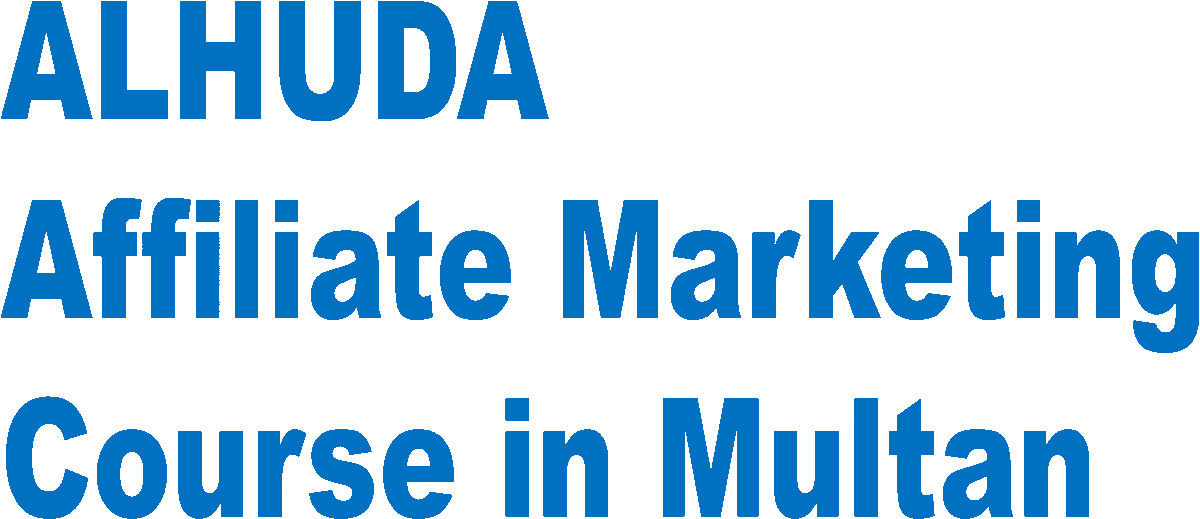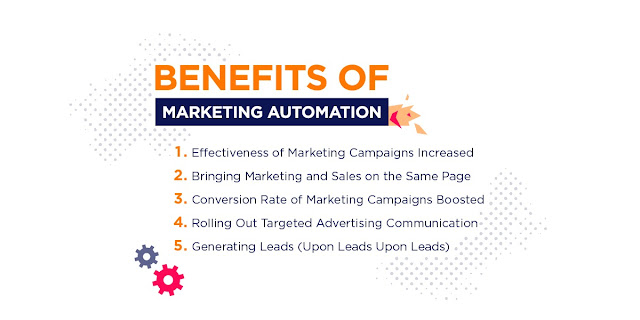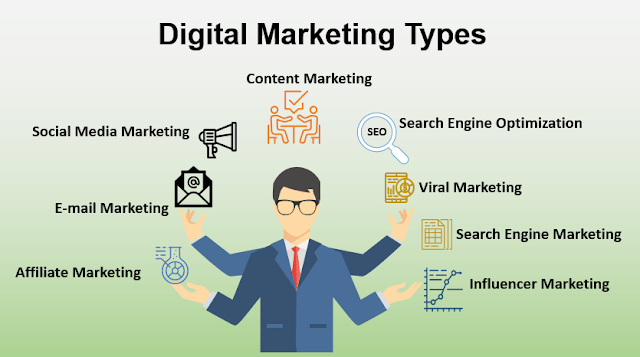Marketing Automation Course Multan 2023
How does marketing automation work?
Marketing automation uses
software to automate monotonous marketing work. Marketing departments can
automate repetitive tasks such as email marketing, social media posting, and
even ad campaigns - not just for the sake of efficiency, but also to provide a
more personalized experience for their customers.
The technology behind marketing
automation makes these tasks faster and easier to do.
Advantages of Marketing Automation
1. Boosting marketing productivity
One of the most important objectives
of implementing any automation is to minimize or eliminate human resource
investment in manual and repetitive tasks, such that your human employees can
instead focus on creative and imaginative jobs that cannot be automated and
specifically requires human intervention.
The same applies to
implementing marketing automation where the goal is to move repetitive
marketing tasks and defined customer/ audience engagement workflows- from
creative humans to efficient machines. This frees your thinking, breathing
marketing human resources to focus on tasks where their attention is actually
critical, such as, marketing strategy, calendar planning, digital customer
experience mapping, campaign performance monitoring, and improvement and
reporting etc.
2. Improving marketing efficiency and ROI
As your organization grows, it
is no longer efficient or cost-effective to have marketers and sales enablers
manually keep track of individual prospects and customers and engage them. This
can drop competitive edge, diminish your ROI balance sheets and can derail
expansion as the company gets bogged down with bureaucracy needed to manage
massive human resources who are largely doing meagre, repetitive and less
motivating (and creative) tasks.
Marketing automation, when
implemented even at a basic-to-intermediate stage, will enable your marketing
team to schedule bulk emails, identity and segment prospects based on potential
for conversion, nurture leads as per defined workflows, trigger engagements-
such as sending customer feedback surveys after an interaction/ pre-defined
time period and capture responses etc. Not only does this exponentially improve
marketing efficiency in delivering outcomes with minimized manual work, your
marketing team will now deliver real improvement in ROI as they engage in more
strategic and creative tasks that are far more impactful.
On a side bonus, it also
improves marketing team’s employee satisfaction and reduces attrition rates, as
these members now find more fulfillment through real creative tasks and
learning opportunities in their day-to-day work profiles.
3. Enabling and delivering campaign personalization
Personalization is critical to
effective lead nurturing and with marketing automation you are better equipped
to personalize how you connect with your audience. It’s because more data helps
you understand your audience better. When integrated with your CRM, your MAP
provides greater insights into your audience which can be used to define
relevant segments and deliver content to the right prospect at the right time
in their buyer’s journey.
4. Providing real-time performance measurement
The 2017 Adestra study also
revealed that 37% marketers see measuring performance as an important objective
of marketing automation. Rightly so! With real-time campaign data through your
MAP, you can analyze how well your campaign was received. Metrics such as open
rate, click-through rate and so on, let you know what worked with your
subscribers and what didn’t. This allows you to make tweaks and optimize your
marketing campaigns along the way.
Types of Marketing Automation Softwares
Marketing automation can range
from simple tools to aid brand promotion or a set of tools and applications to
manage end-to-end workflows and campaigns. While the adoption of various
possible marketing automation components or types varies based on your business
needs, here are some of the common types you can choose from to build your
platform:
- Customer relationship management (CRM):
This kind of an automation
software stores, manages and helps retrieve customer/ lead data, purchase
history and other business interactions between the brand and customers. This
data is critical for aiming to plan and orchestrate customer journeys and bring
some degree of personalization into their experience.
A CRM is essentially your
central hub for automating the capture, storage and retrieval of all customer
or prospect data. A business can also integrate their CRM with other marketing
tools to automate a larger process. For example, you can easily integrate your
Salesforce CRM with email marketing automation platforms like Hubs pot, and
create workflows based on audience segmentation maps for lead nurturing or
upselling (depending on the stage of buying funnel and ultimate goal of the
business).
- Email marketing:
This is one of the first and most common areas of automation
adopted by companies, given the sheer use of this marketing method due to
affordability and evergreen impact. Depending on the level of sophistication of
the software, email marketing automation tools allow marketers to automate and
to create audience segments based on captured data, create workflows for lead
nurturing, create delivery and bounce reports, integrate with CRM/ other tools
and of course, schedule and send bulk emails. Infect, smart systems like Active
Campaigns, Engage Bay and Hubs pot, also allow you to configure email triggers
based on a single or combination of factors.
Most tools also come with
performance measurement dashboards that provide metrics on delivery rate,
opening rate, click-through rate (CTR) etc.
You can personalize various
aspects of the email’s content based on your CDM and dynamic content capabilities.
- Lead management:
Lead management is primarily a B2B marketing need,
where value and effort per customer acquisition is much higher and takes since
each prospect has a unique persona, different buying potential and are at
different stages in the sales funnel, lead automation helps you nurture, engage
and serve them relevant content. Through automation of lead processes such as
mapping buyer journeys, lead scoring, lead qualification and lead progression,
you can efficiently move from lead identification to conversion with custom
designed nurture campaigns. Buyer journey mapping tells you if a lead is anonymous,
known, engaged, marketing qualified, sales accepted, won, lost, or closed. Lead
scoring lets you determine if a lead is ready to be passed on to sales for
further perusal or you need to spend more time nurturing it. You can also
automate the process of passing the marketing-qualified lead to sales
automatically by applying a threshold on the lead score value.


















No comments:
Post a Comment